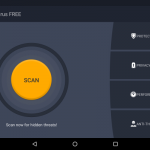Microsoft appeases Kaspersky with security changes to Windows 10 Fall Creators Update

Two months ago, Russian security software firm Kaspersky Labs filed antitrust complaints against Microsoft in Europe, alleging that the software giant was favoring its own Windows Defender over third-party anti-virus software in Windows 10.
In response to that lawsuit, Microsoft has made changes to how the forthcoming Windows 10 Fall Creators Update works with anti-virus software, and an appeased Kaspersky has dropped its complaint.
Kaspersky launches free antivirus tool -- Kaspersky Free!

Kaspersky has been in the news quite a lot recently, primarily because of US concerns over links to the Russian government. The security company also hit the headlines when it filed an antitrust case against Microsoft because Windows 10 disabled Kaspersky antivirus software.
But now there's a new reason to be in the news -- and this time it's a good one. The Russian company is launching Kaspersky Free, a free antivirus tool available globally. Company founder Eugene Kaspersky announced that the US, Canada and numerous Asia Pacific countries have access to the software immediately, and the global rollout will continue over the coming months (although it already seems to be downloadable in the UK).
Microsoft: We disabled third-party anti-virus software in Windows 10 Creators Update to keep users safe

Two weeks ago, Kaspersky Labs filed antitrust complaints against Microsoft in Europe, alleging that the software giant disabled third-party antivirus software in Windows 10 in order to benefit Windows Defender.
In a long blog post today, Rob Lefferts, director of program management for Windows enterprise and security, admits (without mentioning Kaspersky specifically) that Microsoft "temporarily" disabled some parts of AV software it considered incompatible with Windows 10 Creators Update.
AVG AntiVirus for Android review

For many of us, there is no device more important than our smartphone. There is so much valuable data on it -- contacts, business emails, private messages, personal photos and videos, sensitive files and so on -- that you really do not want it to fall into the wrong hands. Some believe it would be impossible to replace, which is why they'd rather have their wallet stolen instead of lose their data.
However, when using a smartphone, security is often an afterthought, which is why so many users fall victim to malware. And that's a shame, because covering your bases is not all that difficult. You can set up a PIN, password or configure the fingerprint sensor and use a dedicated security app to keep your smartphone and the data on it safe. AVG's AntiVirus is a very popular option on Android, thanks to its robust feature set and ease of use.
DoubleAgent exploit uses Windows' Microsoft Application Verifier to hijack antivirus software

Security researchers at Cybellum have revealed details of a zero-day exploit that makes it possible for an attacker to take full control of antivirus software. The technique can be used to take control of just about any application, but by focusing on antivirus tools, the illusion of safety offered to victims means they are likely to be completely unaware of what is happening.
The attack works by exploiting the Microsoft Application Verifier that's built into Windows. It is possible to replace the tool with a custom verifier which can then be used to inject malicious code into any chosen application. A number of well-known antivirus tools -- including Avast, BitDefender, ESET, Kaspersky, and F-Secure -- are vulnerable, while patches have been released for others.
Kaspersky and ESET top the security charts

The way people access the internet is changing, with a shift towards portable devices, and that in turn has led to a shift in the software they use.
Independent testing company AV-Comparatives has conducted its annual survey focusing on which security products (free and paid) are employed by users, along with their OS and browser usage.
The lure of keygens helps spread Gatak malware through the enterprise and healthcare industry

Malware spreads through various channels, and numerous methods are used to fool people into unwittingly installing it. In many cases, the promise of getting something for free -- naming expensive software -- is enough to trick a victim into infecting their own computer.
It's far from being a new tactic, and warnings have been issued to fans of torrenting for some time. Keygens (small programs that promise to provide unlock codes and product keys for big-name software titles) are being used to help spread the Gatak or Stegoloader Trojan. Something that is interesting about this malware campaign is that it is specifically targeting enterprise users, with a particular focus on the healthcare industry.
UK crime rate doubles once all online crimes are taken into account

The Office for National Statistics (ONS) has revealed the true scale of online crime in England and Wales, and it is high enough to effectively double the overall crime rate. The previous estimate about the number of online crimes was 3.8 million, but the latest figures show that it is in fact over 5.8 million.
The ONS says that a tenth of adults have fallen victim to online crime, and incidents are not specific to particular areas or social classes. The statistics take into account virus attacks, online fraud, phishing attacks and the like, with 3.8 million of the overall 5.8 million incidents accounted for by various sorts of fraud.
Keygen alert: free password generator released for PETYA ransomware

The PETYA ransomware is just one of the recent examples of malware that encrypts victims' hard drives until a fee is paid. The advice from the government is not to pay the ransom -- or at least not expect to get a decryption key if you do -- but a password generator has been created that means you can decrypt your hard drive for free.
While TeslaCrypt 4 boasts 'unbreakable encryption', the same cannot be said of PETYA, although the PETYA ransomware does have the irritating habit of overwriting MBRs. This does mean that there is no way to interact with the drive on the infected computer, but with access to a spare machine to read the drive and access to the online tool created by Leostone, you could have your data back in seconds. As the tool's website proudly proclaims, you can "Get your petya encrypted disk back, WITHOUT paying ransom!!!" -- here's what you need to do.
Bitdefender's new tool protects against ransomware

Ransomware is the malware du jour, and each strain seems more vicious than the last. As with any virus variant, there is a game of cat and mouse played out between virus writers and security companies as each battles to outwit the other.
Trying to get ahead of the curve, Bitdefender has released a tool that offers protection against the likes of CTB-Locker, Locky and TeslaCrypt. When it comes to dealing with ransomware the advice, unfortunately, has become a case of either pay up, or revert to data backups. Alternatively, you could try prevention rather than cure, and Bitdefender's 'crypto-ransomware vaccine' could be what you've been looking for.
Police: if you fall victim to online fraud, it's your own fault

Victims of online fraud are to blame for their misfortune and should not be rewarded with a refund for money they lose. This is the view of UK Metropolitan police commissioner Sir Bernard Hogan-Howe who says that banks should not pay money lost to online fraud as the victims have not taken their security seriously.
Rather than offering refunds to customers, banks should instead be encouraging them to use stronger password, keep antivirus software up to date, and generally be more careful. It's a view that’s certainly going to prove controversial and raises the question of whether the carrot or the stick is the best approach to tackling online fraud.
Warning: Comodo Antivirus included insecure remote tech support tool

A researcher from Google Project Zero discovered a serious security issue with the technical support tools supplied with Comodo software products. Tavis Ormandy found that Comodo Antivirus, Comodo Firewall, and Comodo Internet Security all included a bundled VNC server with either no password protection, or a very weak password.
GeekBuddy is a remote desktop tool used by support staff to troubleshoot customer problems, but it also serves as a backdoor that allows for near-unrestricted access to users' computers. The tool installs with full admin rights, meaning that an attacker could very easily gain complete control of a remote computer.
Dridex botnet hacked to deliver free antivirus software

Widely used by cyber criminals to introduce malware onto systems, the Dridex banking trojan has been subject to a number of high profile investigations, and a takedown by US authorities last year.
These things don't stay dead for long, however, and Dridex is back in business. But in an interesting new twist it seems that the Dridex botnet has been hijacked to deliver the free Avira antivirus program rather than its more usual malicious payload.
Giveaway: Get 6 months of ransomware protection for free with Bitdefender Internet Security 2016

Bitdefender Internet Security 2016 was only released recently but it’s already received multiple awards, such as Product of the Year (AV-Comparatives), Editor’s Choice (PC Magazine), and Best Protection for four years straight (AV-Test).
The software usually retails for $51.97, but why pay when you can get it for free?
NirSoft rates antivirus engines for false positives

If you regularly download small technical Windows tools then you’ll know they’re often incorrectly flagged as malware, even when from very trusted sources.
Which security companies are the worst offenders? Freeware developer NirSoft has released a report scoring Virustotal’s 57 antivirus engines for their response to its utilities.
Recent Headlines
Most Commented Stories
BetaNews, your source for breaking tech news, reviews, and in-depth reporting since 1998.
Regional iGaming Content
© 1998-2025 BetaNews, Inc. All Rights Reserved. About Us - Privacy Policy - Cookie Policy - Sitemap.